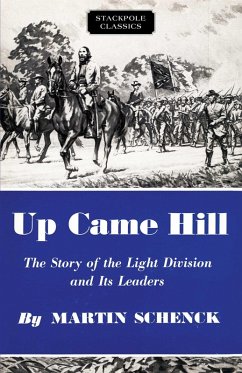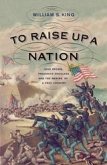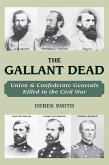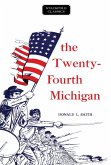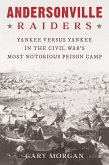The last name spoken on their deathbeds by R. R. Lee and Stonewall Jackson was that of their great subordinate, A. P. Hill. Lee's final words, "Tell A. P. Hill to come up" keynote the story of the Culpeper redhead and his hard hitting light division. For the Light Division always did come up at the critical moment to save the day for the Army of Northern Virginia. The gallantry and dash of Powell Hill's Cavalier ancestors characterized his own career and death on the battlefield. He and his officers and men saw more frontline action than most of lee's army. But their dreadful losses and other vicissitudes of campaigning left a searing imprint on the former U.S. Army captain whose normally friendly spirit had to be submerged by the stern requirements of combat leadership. In less than three years he rose to the rank of corps commander and at the end was Lee's closets adviser. Hill's officers and men returned the loyalty and esteem which he game them and, responding to the flame of his unquenchable fighting spirit, gave their utmost in battle. Hill's Light Division bore the brunt on the Peninsula when Jackson faltered, saved the day at Slaughter's Mountain, withstood formidable assaults on the army's flank at Second Manassas, saved the day at Antietam. It distinguished itself in every major battle from Mechanicsville to Five Forks. Up Came Hill is more than a combat story.Up Came Hill will afford deep satisfaction to the many Civil War buffs and others who value a clear account of the overall course of the war in the eastern theater together with a detailed exposition of some phases which have long been relatively obscure. It constitutes, to, an admirable and overdue tribute to an outstanding leader and to one of the grandest fighting units in which Americans have served.
Dieser Download kann aus rechtlichen Gründen nur mit Rechnungsadresse in A, B, BG, CY, CZ, D, DK, EW, E, FIN, F, GR, HR, H, IRL, I, LT, L, LR, M, NL, PL, P, R, S, SLO, SK ausgeliefert werden.

